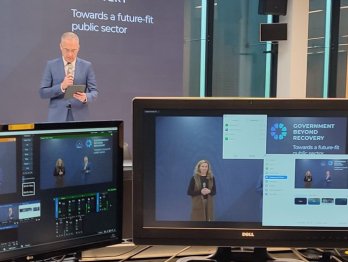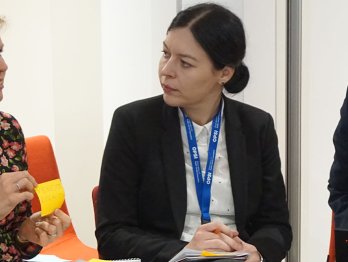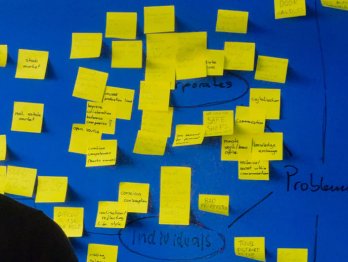COVID-19: Innovative responses update #2

Welcome to our second update about innovative responses (whether public sector innovation, digital government or open government) to the coronavirus crisis, building on what has been submitted so far. Thank you to all who have contributed in answer to our call and to those who have helped disseminate it (such as the Centre for Public Impact). Since our last update we have had over 50 more examples and initiatives added, helping deepen our knowledge and understanding of how the public sector is responding to one of the most significant crises of recent times.
What can we learn from the additional cases? Building on the patterns of the last update, we can see:
- Hackathons: In addition to the hackathons mentioned last week, there has also been ‘Hack the Crisis’ in the Czech Republic, and hackathons in Denmark and Norway. One of the winners of the Latvian hackathon has already produced over 10,000 pieces of personal protective equipment, and received a grant from the Latvian Government for further work. And the Global Hack will run from 9-12 April with a prize pool of €120k for the best ideas
- Other open calls and challenges: A number of countries have issued further challenges or calls, in particular for the private sector and the research community to submit projects that can quickly help with the crisis. These include funding rounds for SMEs in Serbia, for innovative solutions and medtech responses in Ireland, for research teams to work with health agencies and to help use data science and AI to combat the pandemic in Portugal, and to respond to new and urgent needs because of the crisis in the UK
- Service delivery in a crisis/adjusting to context: In Brazil, the Federal Senate has adapted to be able to continue their work through remote sessions; the public sector in Ireland has provided an online portal for doctor consultations to allow them to treat people remotely, and is helping children learning remotely with a cross-platform ‘School on TV’; in Ireland the communications regulator has released more spectrum to deal with increased voice and data traffic and in the Czech Republic two of the largest mobile telecoms have offered unlimited mobile data to customers to help them with the changed context; and in Portugal there have been a number of steps taken to adjust to greater digital interactions with citizens including tutorials on digital public services, allowing citizens to get in a digital queue where physical presence is needed, supporting public management tailored to remote working, exploring how remote experimentation and collaboration can be done with citizens, and recognising the dark sides of confinement by attempting to make it easier for women to access the domestic violence helpline
- Improving communications/providing targeted information: In Brazil the Federal Senate has an online chat facility for staff to ask questions about COVID-19; Latvia has established a single government helpline; there are a growing number of chatbots that have been created, including in Panama, Ireland, Latvia and Portugal (notably the latter three have been provided by non-government actors); and dedicated or aggregated information websites and portals, including in Slovenia and Portugal (both at the whole-of-government and specifically around health)
- Infection control or tracking measures: Interventions range from helping people screen their symptoms themselves (Mexico City), supporting those that might be at most risk if infected (UK), understanding and tracking the extent of the infection and government responses through online portals in Ireland and Portugal, and inviting citizens to share data about symptoms including through their fitness devices to build up a better picture of the extent and locations of the outbreak (Germany)
- Leveraging and redeploying existing resources and solutions: Whether it be about reassignment of staff from one are to another to help with increased demands (Ireland), or bringing back trained individuals to increase medical and clinical capacity (Ireland), expanding online training to health workers (UK), or creating mechanisms for government, businesses and civil society to share existing or possible solutions (Ireland and Portugal), governments are leveraging existing resources in new ways
- Social solidarity and ‘caremongering’: In addition to the volunteer and caremongering examples pointed out last week, there have been platforms to match volunteers with needs in the Czech Republic and Latvia. A number of governments, such as Ireland, have intervened to support employees and the self-employed through the necessary economic disruption. In Madrid, the city has used the citizen participation platform ‘Decide Madrid’ to call for ideas and actions from citizens for social solidarity
- For children: A couple of cases have highlighted some of the particular efforts that are being taken to support children through this anxiety-inducing global crisis, from the substantive to the reassuring. That includes a dedicated ‘CoronaKids’ website in Portugal with tailored news and resources, and the New Zealand Prime Minister providing reassurance that the Easter Bunny is deemed an essential worker, and will thus be able to make deliveries for Easter.
Additional observations from governments
Last week, OPSI held a virtual meeting of its network of National Contact Points, where we have heard about a number of other responses that we will add to the collection as we get more detail. Some of the broad observations from the group that we heard have included the speed at which many initiatives have occurred, and that some things (e.g. digital transformation efforts) have been accelerated by the crisis. There has also been a significant adjustment for many public administrations in moving to telework (where possible), and adjusting to a very different context while simultaneously responding to often increased or more complex demands due to the crisis. We hope to share further thoughts and reflections over time, including the perspectives of National Contact Points.
In addition, delegates from the OECD Expert Group on Open Government Data have shared some of their knowledge and experience in tapping the value of open data to respond to the Covid-19 crisis. These insights will enrich and inform policy advice and support from the OECD in the use of digital technologies and data in the context of crisis management. As well, the OECD Working Party of Senior Digital Government Officials (E-Leaders) was invited to join efforts and contribute to the current call.
If you know of other examples, we want to hear from you
We need your help in continuing to add innovative initiatives to the coronavirus crisis and disseminating the call. This not only helps us to gather data to inform our research and support of governments, but it helps others to share ideas and replicable solutions with others around the world. All of our work on this topic will feed into the broader work of the OECD in compiling data, information, analysis and recommendations regarding the health, economic, financial and societal challenges posed by the impact of Coronavirus (COVID-19). Please visit the dedicated page for a full suite of coronavirus-related information.









